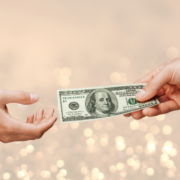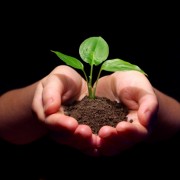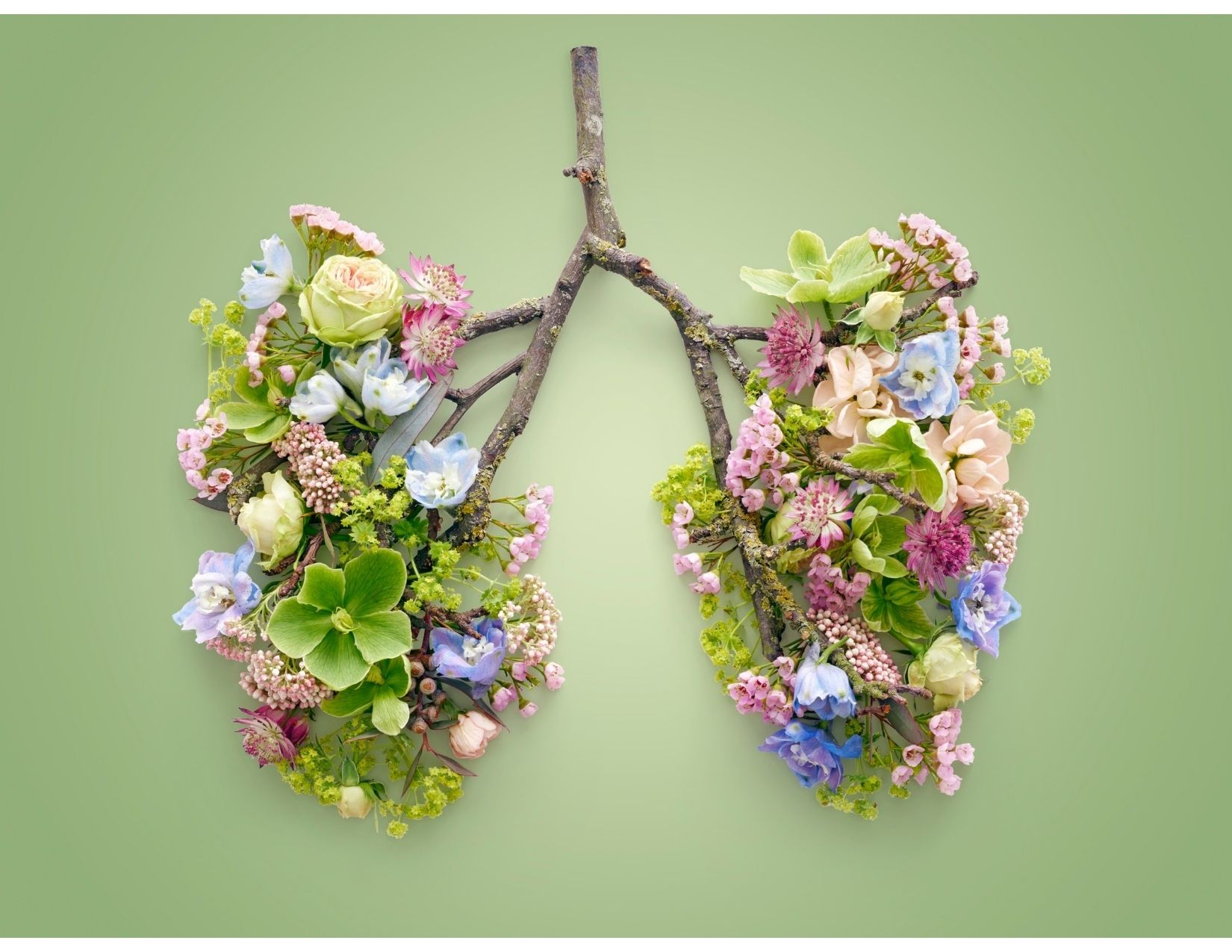 I just came out of a week-long retreat, practising breathing in and out. That’s it. It was that simple. I was noticing whether my breath was long or short. Each day my body calmed down, and my thoughts and emotions slowed down. This is the meditation system, called Anapanasati, taught by the Buddha, in which mindful breathing is used to develop both samadhi (a serene and concentrated mind) and vipassana (Insight).
I just came out of a week-long retreat, practising breathing in and out. That’s it. It was that simple. I was noticing whether my breath was long or short. Each day my body calmed down, and my thoughts and emotions slowed down. This is the meditation system, called Anapanasati, taught by the Buddha, in which mindful breathing is used to develop both samadhi (a serene and concentrated mind) and vipassana (Insight).
As I practised everything got quieter, my storylines became clearer. Some were neutral – what’s for lunch, or thinking of foods I like. Others were very heated – the anxiety of climate change and our community’s safety, as wildfires burn in our province. Some days it was hard to breathe in the cabin. Worries about my business, clients, revenue, an argument with my partner, a disagreement with a colleague.
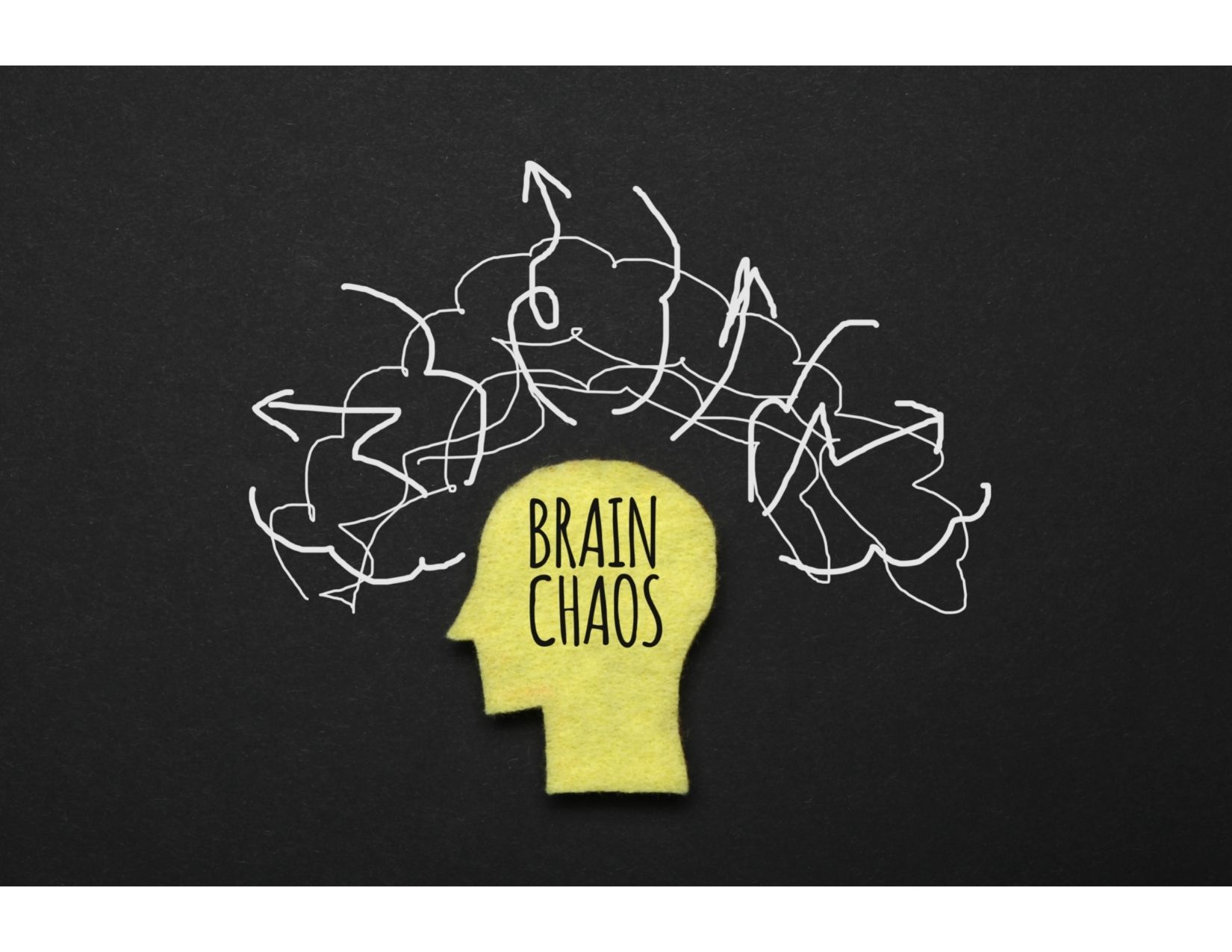 My partner or colleague is not in my meditation cabin. I am having this imaginary conversation and going over the same dialogue repeatedly hoping to resolve it. It increases my heart rate, uses up my precious energy without resolving anything.
My partner or colleague is not in my meditation cabin. I am having this imaginary conversation and going over the same dialogue repeatedly hoping to resolve it. It increases my heart rate, uses up my precious energy without resolving anything.
Then I remember the breathing practice and bring the focus back to my breath. Bringing the mind back, putting down the storyline and coming back to the breath and body.
 Training the mind to be present
Training the mind to be present
The more I remember, bringing the focus back, the weaker my storyline’s power over me. This remembering gets quicker as I practise. It is mind training. Just like consistent strength training at the gym tones muscles, I meditate to train my mind to eventually stay in the present moment all the time.
That doesn’t mean I won’t have thoughts, and feelings. They just won’t to have the power to take me away from being in the present moment. My mediation teacher constantly repeats “Karen, there is nothing wrong with this moment. This moment is perfect.”
“This moment is perfect? Are you crazy? We have an unjust economy, wildfires burning all around the meditation center, and people are suffering from poverty, loneliness and fear. What do you mean this moment is perfect?”
“When you leave what is happening right now, and your mind is thinking about what happened yesterday, something it didn’t get, didn’t like, or worries about the future, then you are rejecting what you hear, see, touch and smell in this moment. You are in your head. You miss the birds’ song, the wind through the trees, that your ankles are swelling and need your attention. You are missing what is needed right now. You are missing life.”
 I go for my daily walk.
I go for my daily walk.
Breathing in and breathing out, noticing if my breath is long or short, shallow or deep.
Hearing the birds sing.
Breathing in and breathing out, noticing if my breath is long or short, shallow or deep.
Experiencing joy.
Breathing in and breathing out, noticing if my breath is long or short, shallow or deep.
Noticing a grizzly about 200 meters away.
Breathing in and breathing out, noticing if my breath is long or short, shallow or deep.
Turning and walking away quickly.
Breathing in and breathing out, noticing if my breath is long or short, shallow or deep.
Life is impermanent. It is certain that I will take my last breath, probably somewhere in the 2050s. I have eyes, ears, nose and body for another 30 years. When I use my senses to be engaged with this very moment, no matter how unpleasant, I give myself and others the gift of my life, my wisdom, my experience.
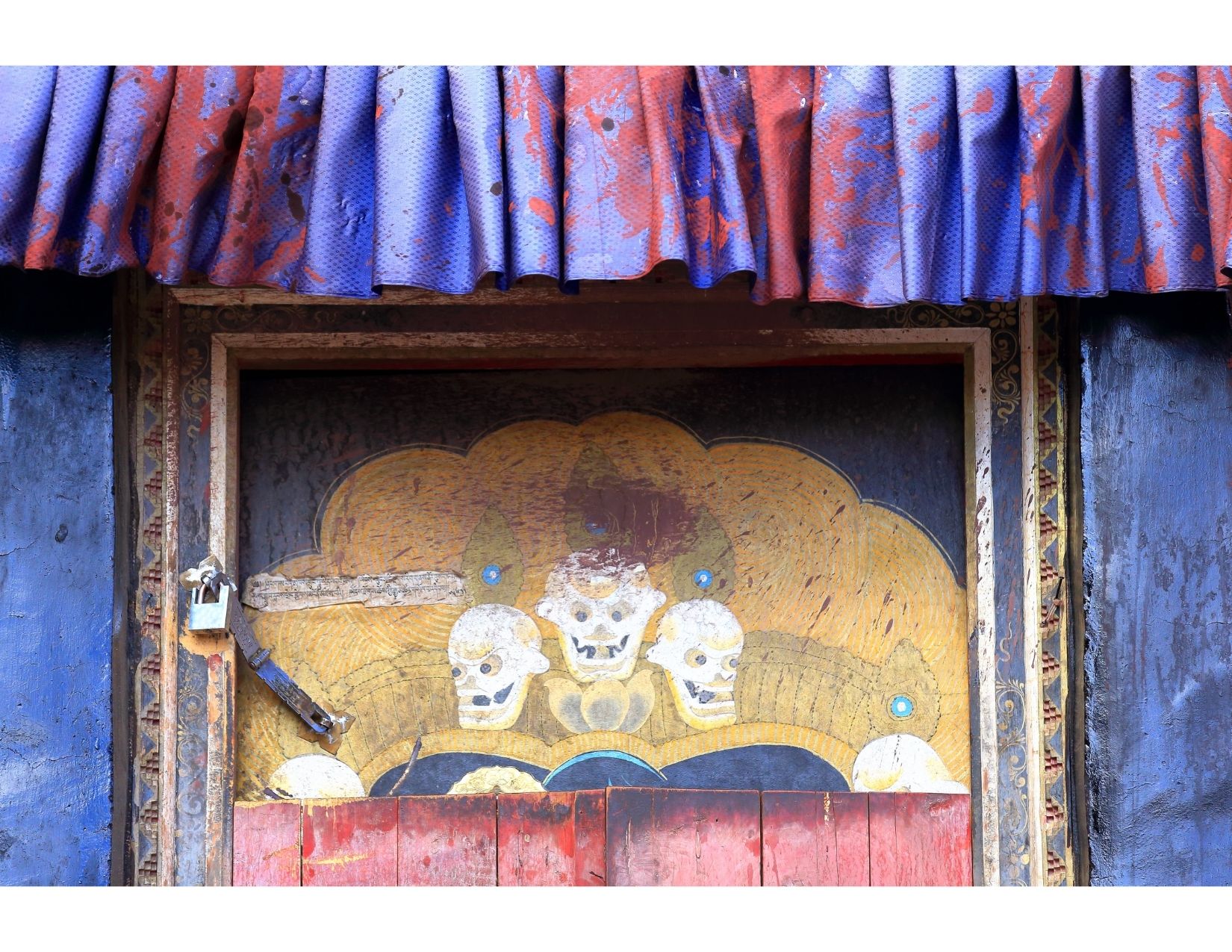
Transforming our world from “me or you” to “me and you”
We are having a hard time right now. The structures and systems of our human family are rooted in greed and fear, in a me or you worldview. It has assumptions like I can only win if you lose. We haven’t got enough, so we better look after me and mine. When I feel complete with that, I’ll look at others more unfortunate than me. And that day never seems to come.
We are so used to operating in a world of scarcity and lack. Our relationship with money reflects this. We are trained to repel the unpleasant and chase the pleasant. We are trained to be on the wheel of fear of missing out (FOMO), running on the belief that there is something wrong with us. Social media and mainstream culture encourage distraction from being in the present.
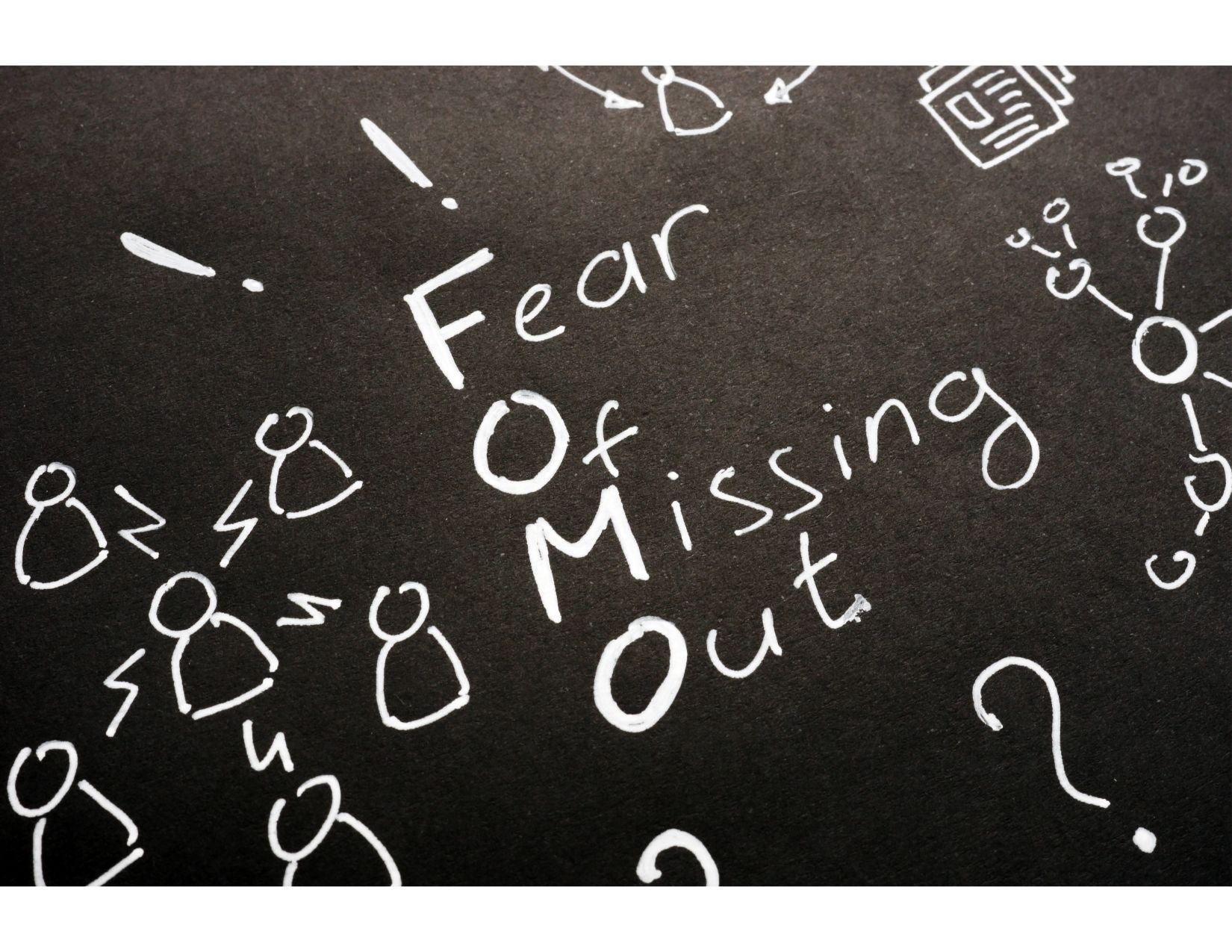 The futurist Buckminister Fuller, said in the 1980s that our structures and systems are rooted in a me OR you understanding of the world. He said it would take around 50 years for these institutions to crumble enough that they will need to be recreated, reborn, or redesigned in a new paradigm: a me AND you understanding of the world. A world where there is enough for everyone everywhere to have a productive and healthy life. Imagine.
The futurist Buckminister Fuller, said in the 1980s that our structures and systems are rooted in a me OR you understanding of the world. He said it would take around 50 years for these institutions to crumble enough that they will need to be recreated, reborn, or redesigned in a new paradigm: a me AND you understanding of the world. A world where there is enough for everyone everywhere to have a productive and healthy life. Imagine.
As we go from the me or you understanding, to the me and you, we need to get reacquainted with the practice of returning home to our body and senses. Only then can we look at the unconscious set of assumptions that are at the basis of how we organise ourselves, and of our storylines.
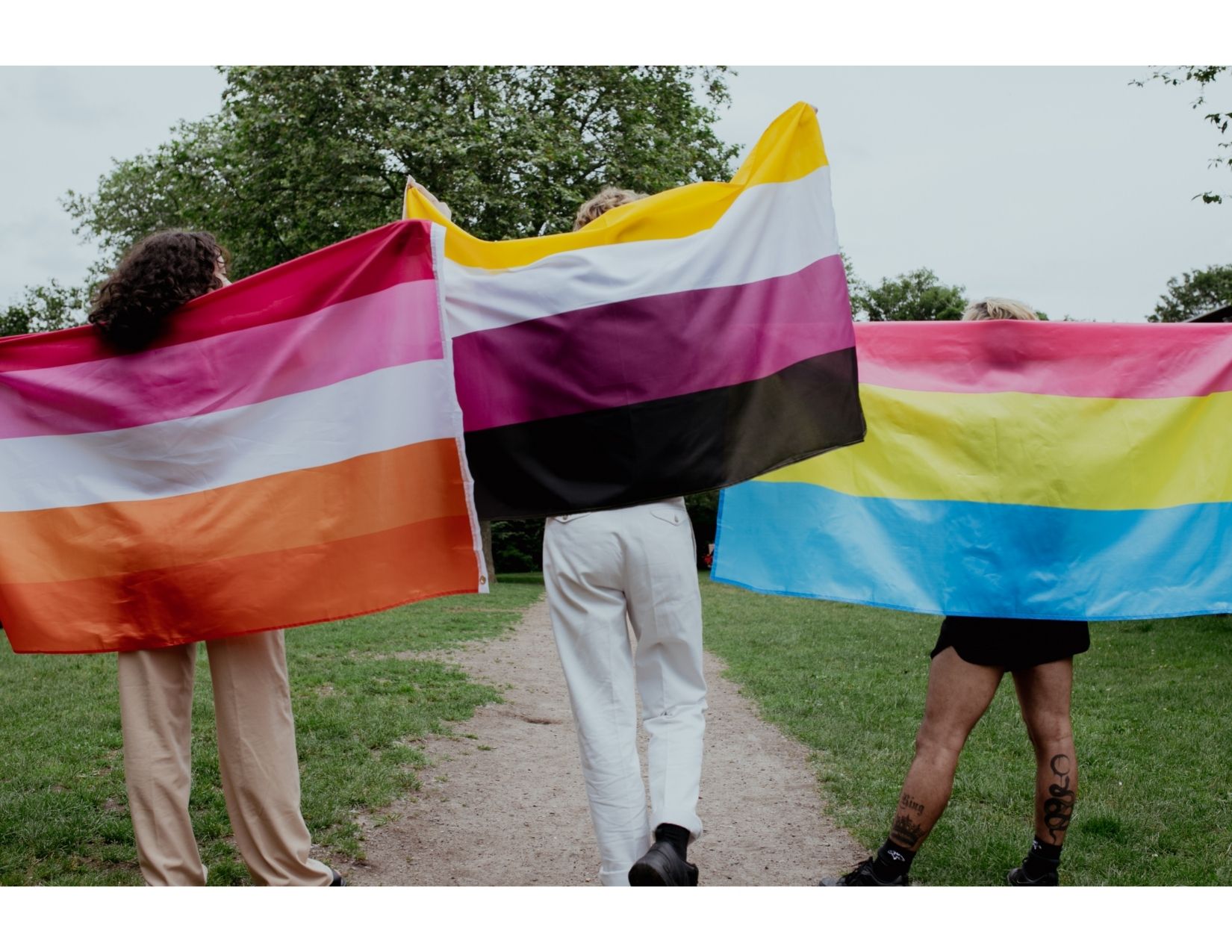 Breathing in and breathing out, noticing if my breath is long or short, shallow or deep.
Breathing in and breathing out, noticing if my breath is long or short, shallow or deep.
Noticing scarcity in my heart.
Breathing in and breathing out, noticing if my breath is long or short, shallow or deep.
Calming the states of not feeling enough and not feeling valued.
Breathing in and breathing out, noticing if my breath is long or short, shallow or deep.
Calming the states of not feeling enough and not feeling valued.
If you would like to build a sustainable meditation practice that permeates your body, career, relationships and all other areas of your life, join me for the Embodied Mindfulness: Tools for Holistic Living (Online) course, starting September 11th. If you are interested in healing your relationship to money, there is a small group circle starting in September. There are 4 spots remaining. I take 8 maximum for the money circle. It is small and intimate to create a healing space for your relationship with money. For further information, send me an email at [email protected].
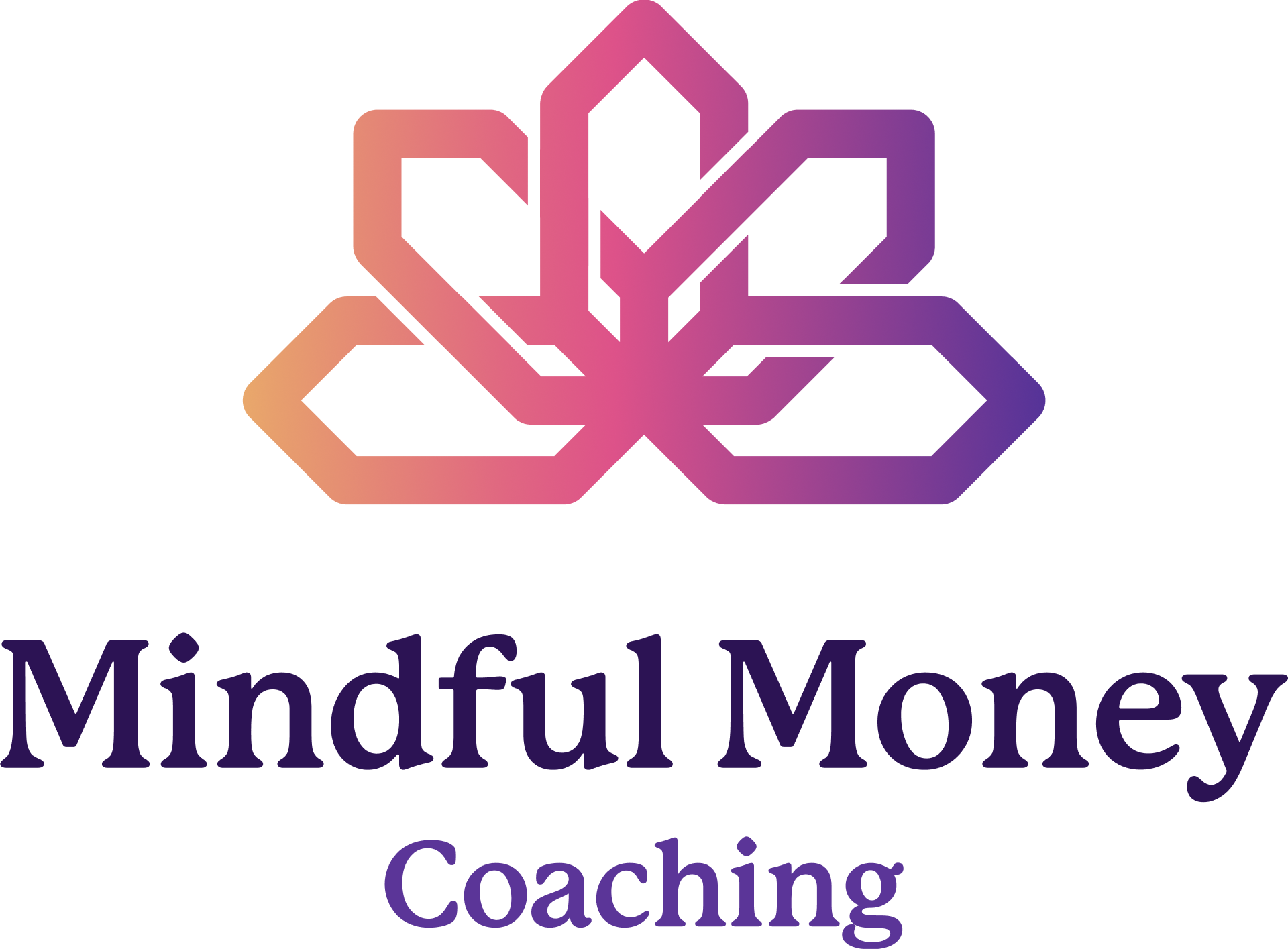
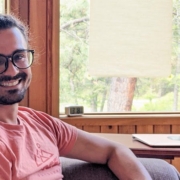

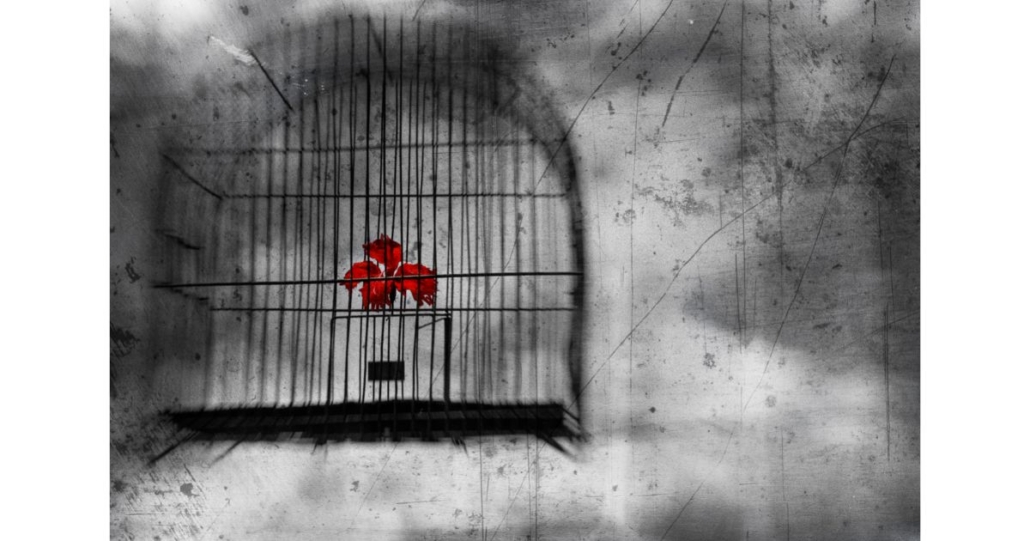 Recently, a young woman, in her 30s, came to me looking for help to prepare for some changes that were going to happen in her life. She was about to receive a big inheritance and she wanted to be prepared psychologically for that to happen.
Recently, a young woman, in her 30s, came to me looking for help to prepare for some changes that were going to happen in her life. She was about to receive a big inheritance and she wanted to be prepared psychologically for that to happen. 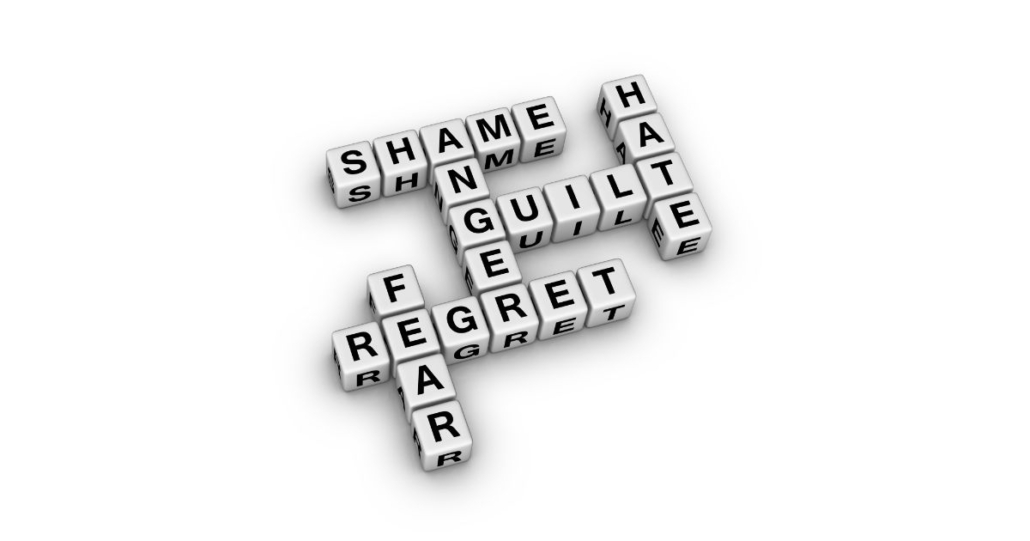
 She would feel like she was imprisoned by the inheritance. A sense of being
She would feel like she was imprisoned by the inheritance. A sense of being  After all, it is your money. You have earned it. They have not. When you earn your own money, there is confidence in yourself that comes with that, and you cannot pass that confidence on. In my experience receiving an inheritance, money that they have not earned tends to shut down the person’s life energy. It’s an unintended consequence. The inheritor can become paralyzed and stuck in reaching their potential. However, if this inheritance is sensitively and thoughtfully transferred the outcome can be very different.
After all, it is your money. You have earned it. They have not. When you earn your own money, there is confidence in yourself that comes with that, and you cannot pass that confidence on. In my experience receiving an inheritance, money that they have not earned tends to shut down the person’s life energy. It’s an unintended consequence. The inheritor can become paralyzed and stuck in reaching their potential. However, if this inheritance is sensitively and thoughtfully transferred the outcome can be very different.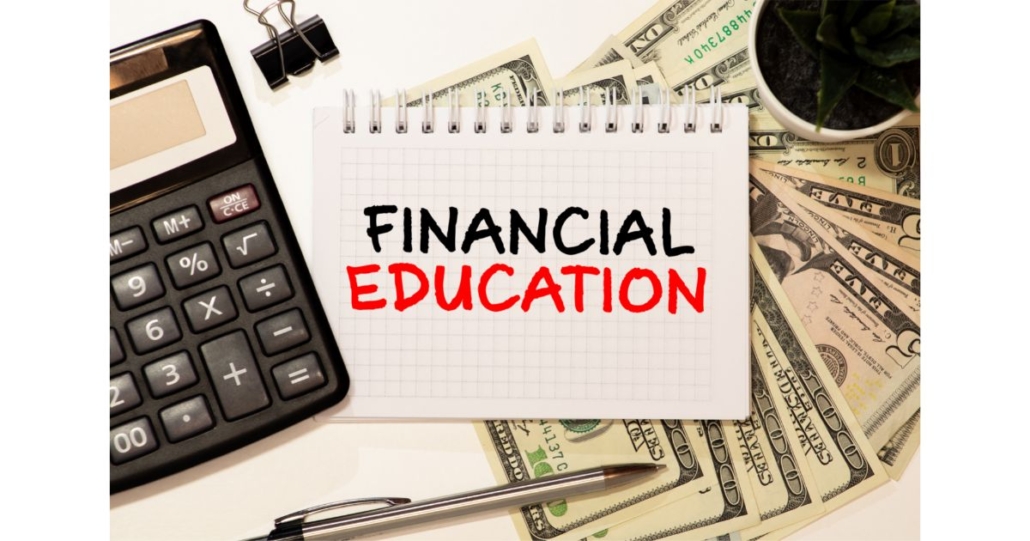

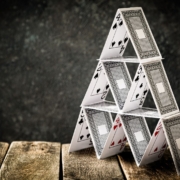
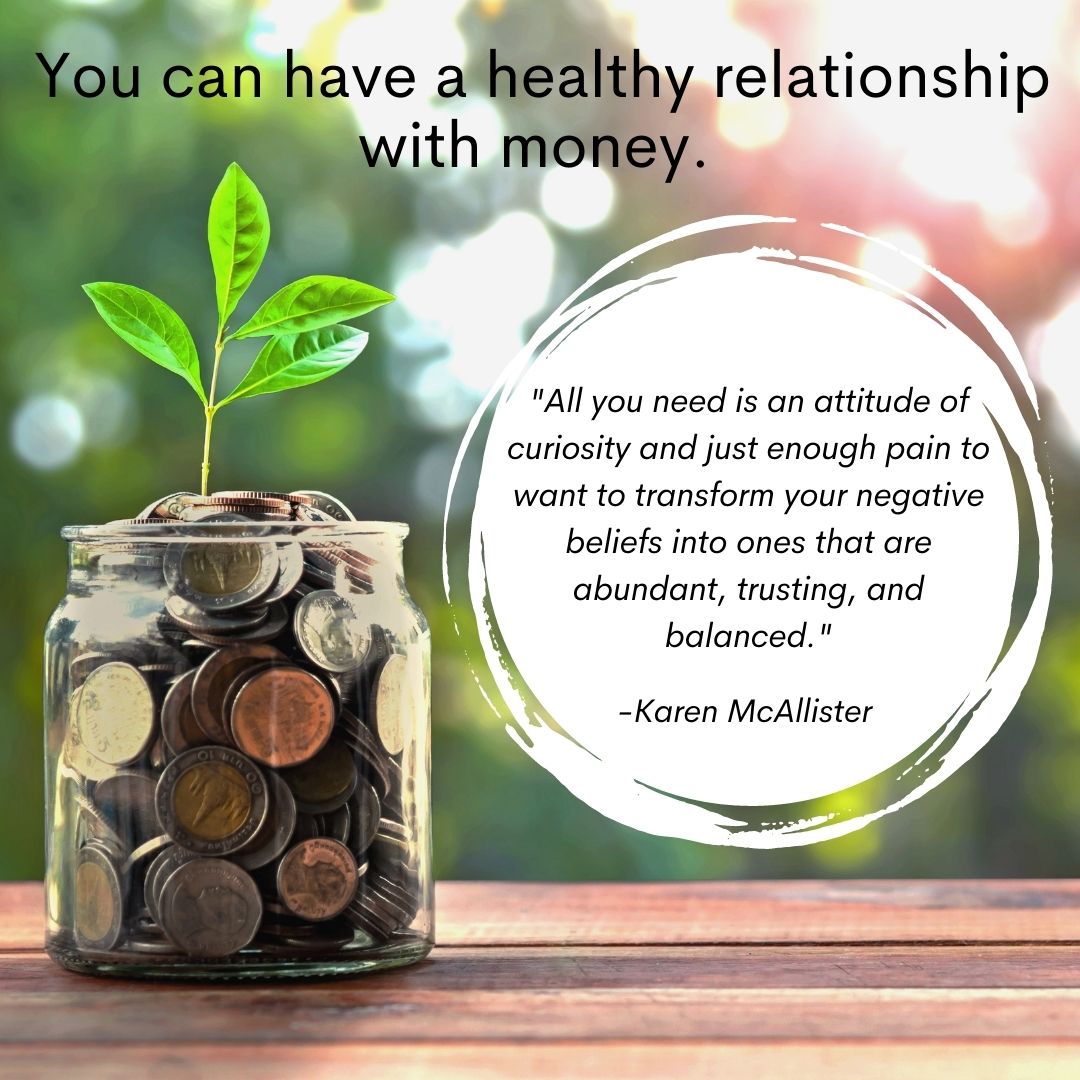 She paused before continuing, “for as long as I could remember, I have struggled with budgeting and financial planning. I have taken courses, talked to financial planners, and used countless budgeting apps. But I always found myself in the same position – never feeling like I had enough money and dreading the day that I could lose everything due to unforeseen circumstances. And yet, I couldn’t help but feel that my insecurities were all due to my own actions. Budgeting wasn’t so hard, so why couldn’t I maintain one? And so, after countless failed budgets and lack of savings, a core belief of helplessness around money was settling in.”
She paused before continuing, “for as long as I could remember, I have struggled with budgeting and financial planning. I have taken courses, talked to financial planners, and used countless budgeting apps. But I always found myself in the same position – never feeling like I had enough money and dreading the day that I could lose everything due to unforeseen circumstances. And yet, I couldn’t help but feel that my insecurities were all due to my own actions. Budgeting wasn’t so hard, so why couldn’t I maintain one? And so, after countless failed budgets and lack of savings, a core belief of helplessness around money was settling in.” 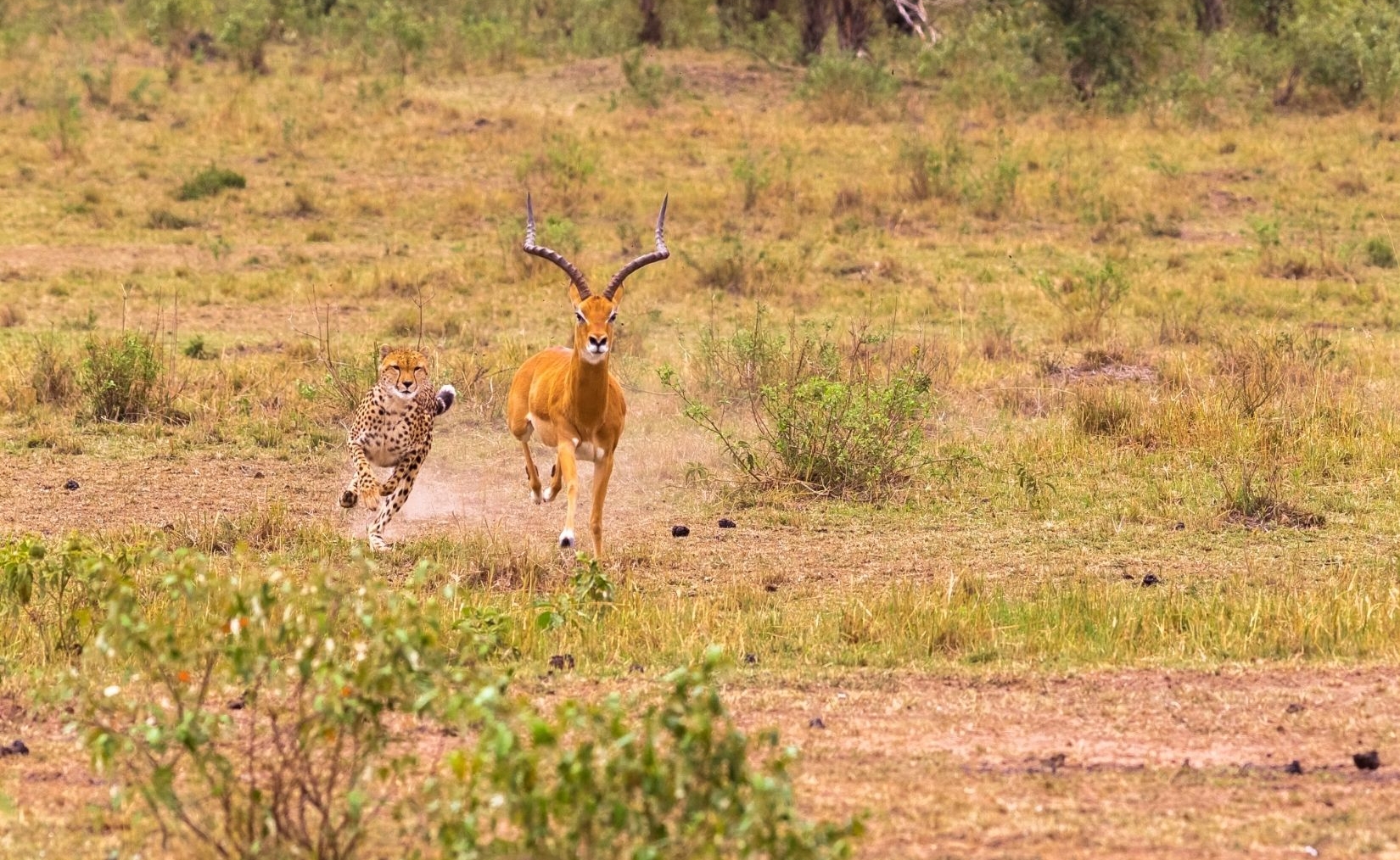 They were behaving as if they were still on the run in their adopted land. And the belief was money is the thing that will save you. The pain came out in different ways in different family members, and Leticia took on the role of being the connector and mother of the family. Holding the space for everyone and protecting her younger siblings. They were still psychologically and emotionally fleeing.
They were behaving as if they were still on the run in their adopted land. And the belief was money is the thing that will save you. The pain came out in different ways in different family members, and Leticia took on the role of being the connector and mother of the family. Holding the space for everyone and protecting her younger siblings. They were still psychologically and emotionally fleeing.  She slowly learned that financial difficulties can happen to anyone. It wasn’t a reflection of her. She learned to understand that her pain and fear have nothing to do with money. She was willing to start taking baby steps towards looking at her inherited fear and calling it what it really was.
She slowly learned that financial difficulties can happen to anyone. It wasn’t a reflection of her. She learned to understand that her pain and fear have nothing to do with money. She was willing to start taking baby steps towards looking at her inherited fear and calling it what it really was.

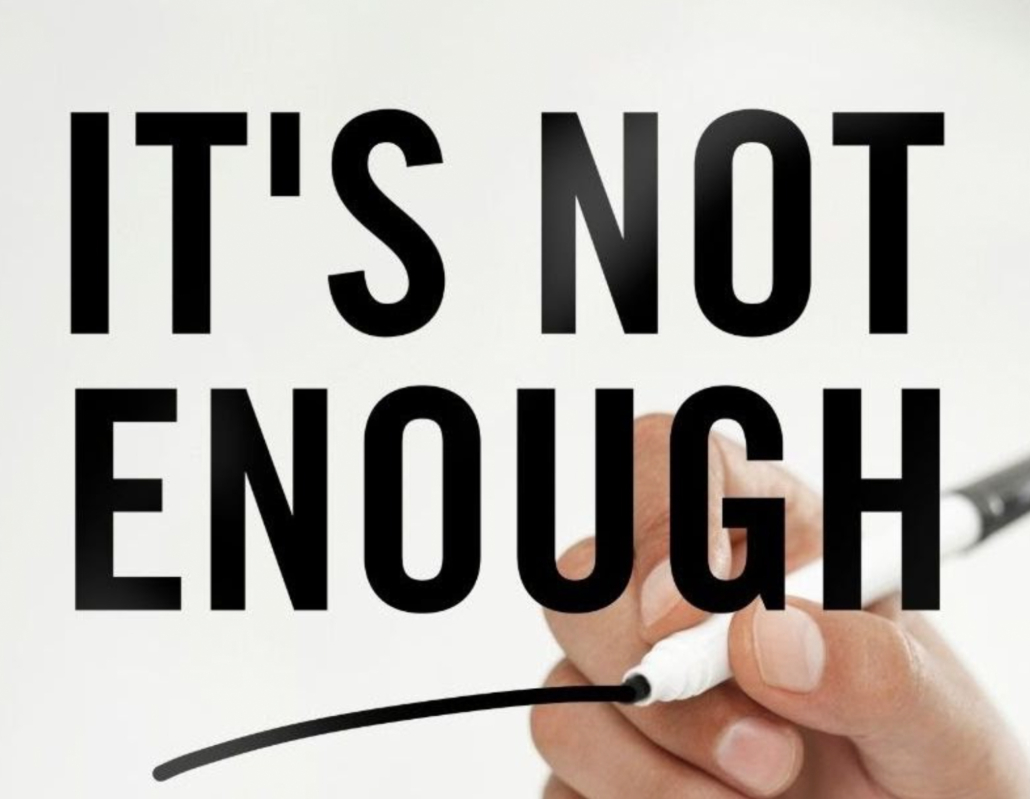 Growing up feeling plagued by financial woes, I learned to feel like I never had enough or never knew enough about money. On the exterior, I am in a fairly well-off position. I’m working a decent-paying job, contributing to a retirement fund, and renting out a property. And yet, I go about my daily life with dread that one day, something will happen that will cause my delicate balance of working and paying the bills to collapse like a fragile house of cards. Never did I think that one day I could get support from someone like Karen, from
Growing up feeling plagued by financial woes, I learned to feel like I never had enough or never knew enough about money. On the exterior, I am in a fairly well-off position. I’m working a decent-paying job, contributing to a retirement fund, and renting out a property. And yet, I go about my daily life with dread that one day, something will happen that will cause my delicate balance of working and paying the bills to collapse like a fragile house of cards. Never did I think that one day I could get support from someone like Karen, from 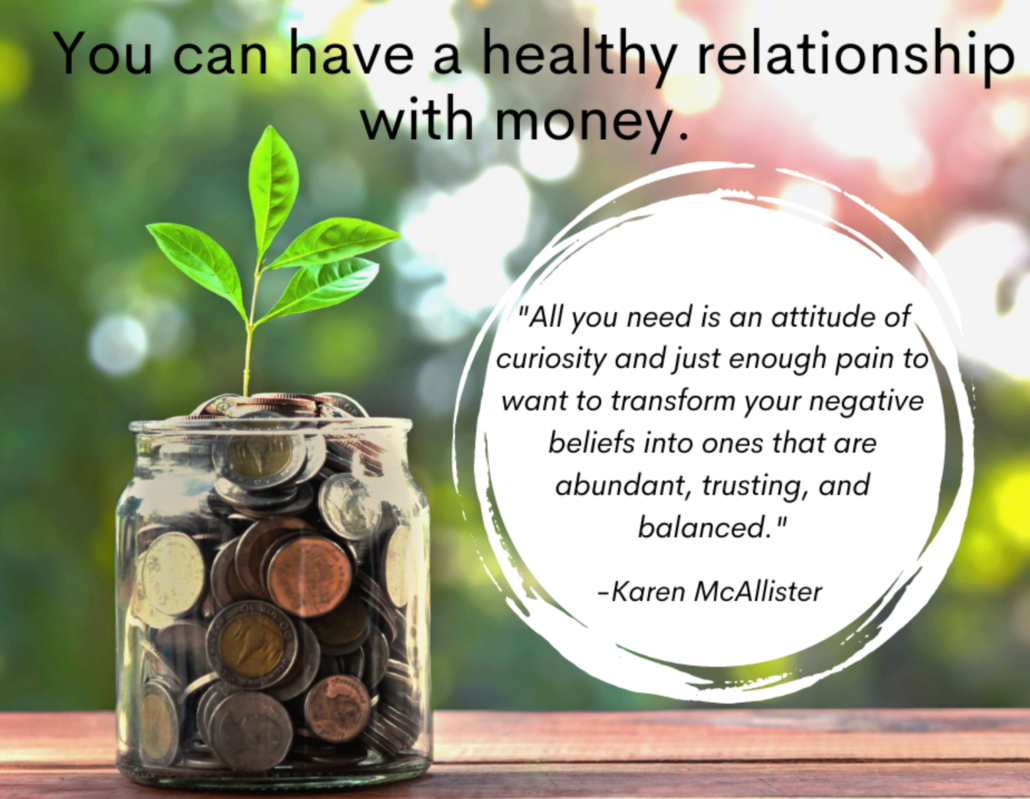 It wasn’t until I talked to Karen did I realize that I was not acknowledging a fundamental issue regarding money. An initial exploration needed to happen before getting the financial education and before using budgeting apps. And that was asking myself, ‘What is my relationship with money?’ And so, my journey of money coaching with Karen began.
It wasn’t until I talked to Karen did I realize that I was not acknowledging a fundamental issue regarding money. An initial exploration needed to happen before getting the financial education and before using budgeting apps. And that was asking myself, ‘What is my relationship with money?’ And so, my journey of money coaching with Karen began.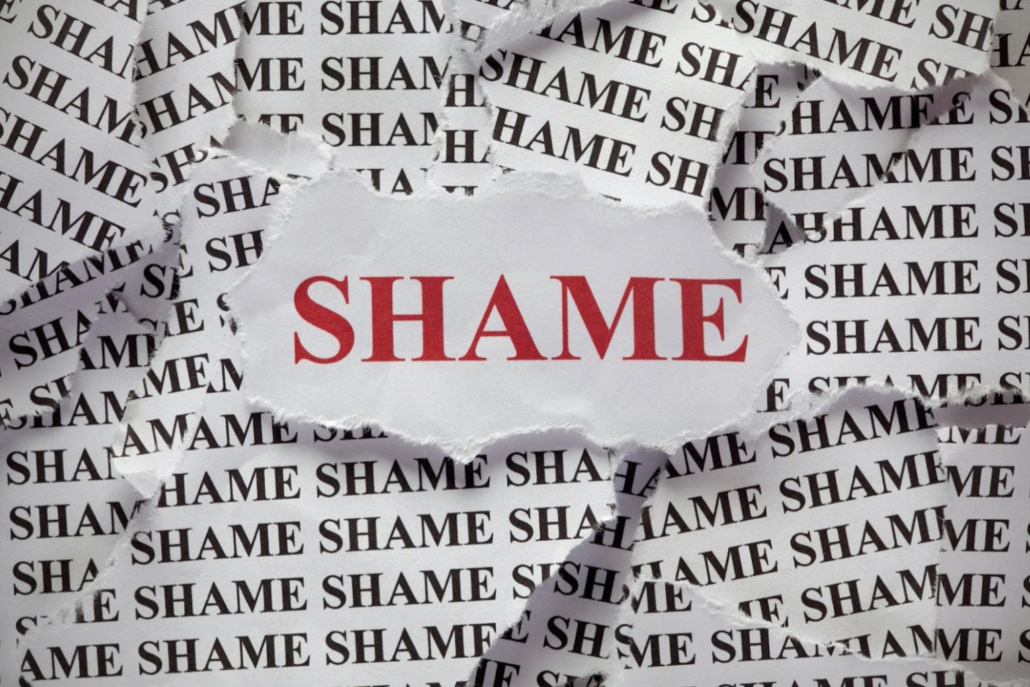
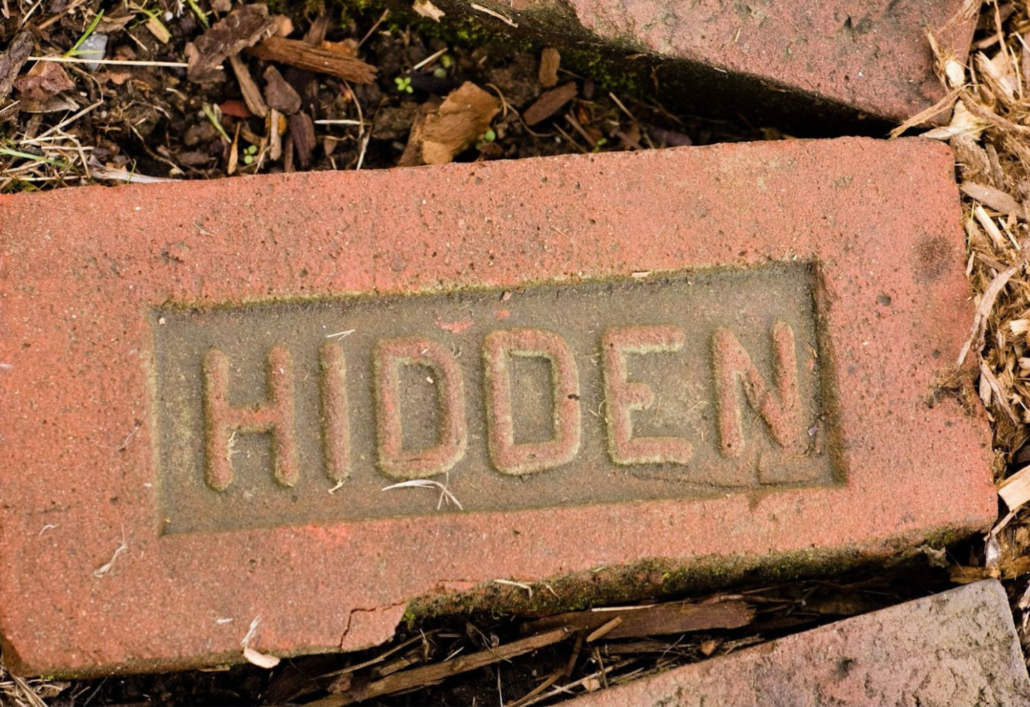 Something notable that Karen highlighted was the importance of taking responsibility for our finances even if we didn’t cause those issues to begin with. All of these insecurities lay hidden in my life, stemming from childhood circumstances, yet they still shaped my thoughts and behaviors in the present day. I struggled with this for years, not acknowledging the pain I experienced around money, and subsequently avoided dealing with it. It was all so overwhelming, and my need to predict and control everything in my life just couldn’t deal with the uncertainty around my finances.
Something notable that Karen highlighted was the importance of taking responsibility for our finances even if we didn’t cause those issues to begin with. All of these insecurities lay hidden in my life, stemming from childhood circumstances, yet they still shaped my thoughts and behaviors in the present day. I struggled with this for years, not acknowledging the pain I experienced around money, and subsequently avoided dealing with it. It was all so overwhelming, and my need to predict and control everything in my life just couldn’t deal with the uncertainty around my finances. 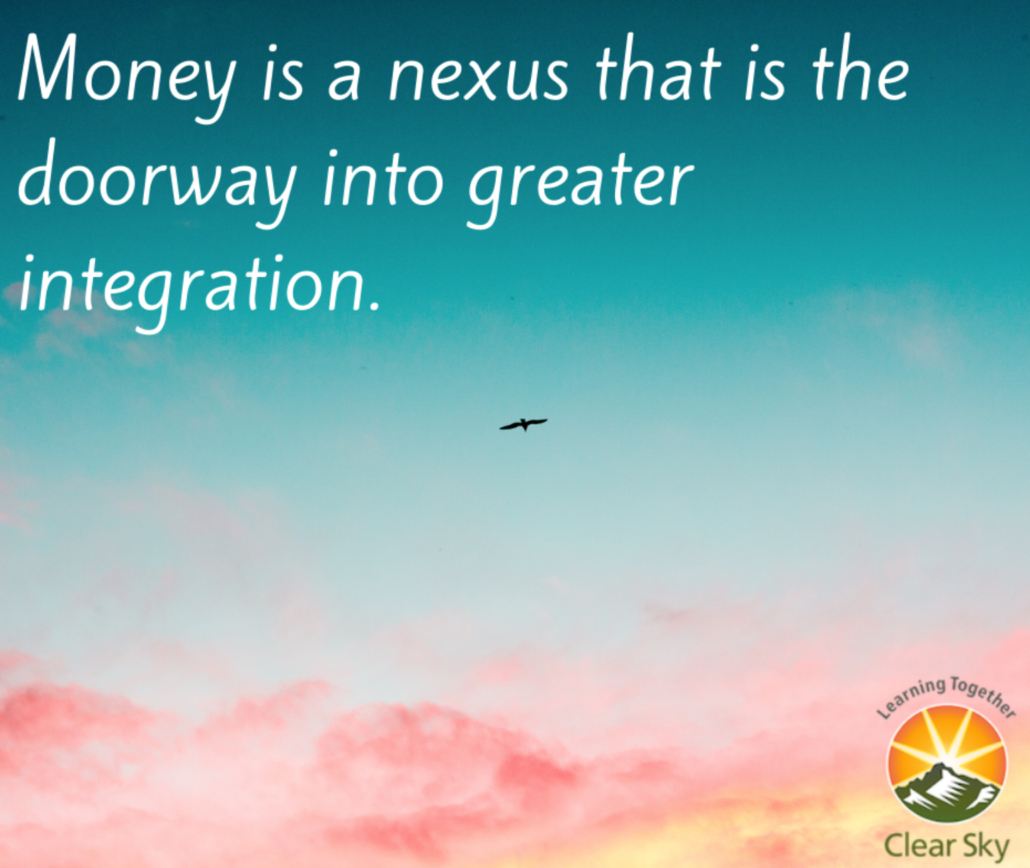
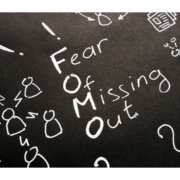
 I just came out of a week-long retreat, practising breathing in and out. That’s it. It was that simple. I was noticing whether my breath was long or short. Each day my body calmed down, and my thoughts and emotions slowed down. This is the meditation system, called Anapanasati, taught by the Buddha, in which mindful breathing is used to develop both samadhi (a serene and concentrated mind) and vipassana (Insight).
I just came out of a week-long retreat, practising breathing in and out. That’s it. It was that simple. I was noticing whether my breath was long or short. Each day my body calmed down, and my thoughts and emotions slowed down. This is the meditation system, called Anapanasati, taught by the Buddha, in which mindful breathing is used to develop both samadhi (a serene and concentrated mind) and vipassana (Insight). My partner or colleague is not in my meditation cabin. I am having this imaginary conversation and going over the same dialogue repeatedly hoping to resolve it. It increases my heart rate, uses up my precious energy without resolving anything.
My partner or colleague is not in my meditation cabin. I am having this imaginary conversation and going over the same dialogue repeatedly hoping to resolve it. It increases my heart rate, uses up my precious energy without resolving anything.  Training the mind to be present
Training the mind to be present I go for my daily walk.
I go for my daily walk. 
 The futurist Buckminister Fuller, said in the 1980s that our structures and systems are rooted in a me OR you understanding of the world. He said it would take around 50 years for these institutions to crumble enough that they will need to be recreated, reborn, or redesigned in a new paradigm: a me AND you understanding of the world. A world where there is enough for everyone everywhere to have a productive and healthy life. Imagine.
The futurist Buckminister Fuller, said in the 1980s that our structures and systems are rooted in a me OR you understanding of the world. He said it would take around 50 years for these institutions to crumble enough that they will need to be recreated, reborn, or redesigned in a new paradigm: a me AND you understanding of the world. A world where there is enough for everyone everywhere to have a productive and healthy life. Imagine.  Breathing in and breathing out, noticing if my breath is long or short, shallow or deep.
Breathing in and breathing out, noticing if my breath is long or short, shallow or deep.